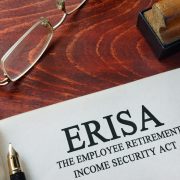Property Management in Real Estate IRAs Part Two
 Property Management, Maintenance, and Other Expenses
Property Management, Maintenance, and Other Expenses
If you decide to hold real estate in a Real Estate IRA, you must pay expenses and services with money from within the IRA. This includes property management fees, maintenance expenses, legal expenses, and more.
Liquidity
Since you must pay all expenses from within your IRA, you must plan ahead so that you do not have liquidity problems.
Congress has limited the annual amount you can contribute to an IRA – whether deductible or non-deductible – to $5,500, plus an additional $1,000 for those ages 50 or older.
If you need to commit more outside cash to your IRA to pay property management fees or other fees and expenses associated with rental property ownership, you can roll money into the IRA from other IRAs, 401(k)s or other eligible retirement accounts.
You also may be able to have your IRA borrow some cash until such time as you can contribute or roll over enough money to pay the expenses, or until the assets within the Real Estate IRA generate enough money to pay off the loan on their own.
It is always best to use professionals to do a proper analysis prior to purchasing the real estate, so that you can ensure your IRA has the cash it needs to cover anything that might come up.
Prohibited Parties and Transactions for Real Estate IRAs
Keep these rules in mind, though:
- The loan must be non-recourse. The lender cannot have a claim on any assets other than assets outside the IRA. You cannot pledge anything outside the IRA as collateral.
- The IRA cannot borrow from you directly, as the owner of the IRA.
- The IRA cannot borrow from your spouse, children, grandchildren, parents or grandparents, nor can it borrow from those of your spouse.
- The IRA cannot borrow from any entities any of the individuals listed above controls. That is, you don’t get to make a sweetheart loan to your own IRA from a corporation your wife owns.
Similar rules apply to the property management firm you hire itself. Normally, of course, outside an IRA, there is no restriction on who can act as property manager for you. If the manager has the license required by your state, and you have a written contract, you are good to go.
But the rules are different for rental properties held within a Real Estate IRA. Specifically, you must maintain an arm’s length business relationship with any vendors hired to work on or service any properties held within a Self-Directed IRA.
For that reason, you cannot pay yourself, a spouse, child or grandchild, parent or grandparent to serve as property manager for your Real Estate IRA property – even if you pay their fees or salaries from within the IRA.
You also cannot engage a property management company that is owned by yourself, a spouse, child, grandchild, parent or grandparent, nor one controlled by anyone who provides you advice concerning your Real Estate IRA.
The reasoning is simple: Congress created the IRA as a tool to provide people with the means and incentives to take control of their own retirement security – and to save money on a tax-advantaged basis to that end. They did not intend for investors to use their IRAs to make sweetheart deals with themselves to dodge taxes on their personal accounts. Using your IRA for channeling business or borrowing from or lending to yourself or family members raises the potential for conflicts of interest, and is therefore prohibited
Penalties for Abusing Real Estate IRAs
The penalty for failing to abide by these rules is severe and could result in the total disallowance of the IRA. If that happens, the government will consider everything within the IRA to have been distributed, and will assess income taxes at federal and state level, plus a potential 10 percent penalty for early withdrawal if you are not yet age 59½.
At American IRA, LLC, we help our clients avoid these penalties. As a third party administrator with special expertise in Real Estate IRAs and other forms of self-directed retirement accounts, we work in conjunction with your tax advisor and investment advisor to ensure your self-directed retirement account transactions occur without a hitch and in compliance with the law. For more information, visit us at www.americanira.com or call us at 1-866-7500-IRA (472). We look forward to working with you.




